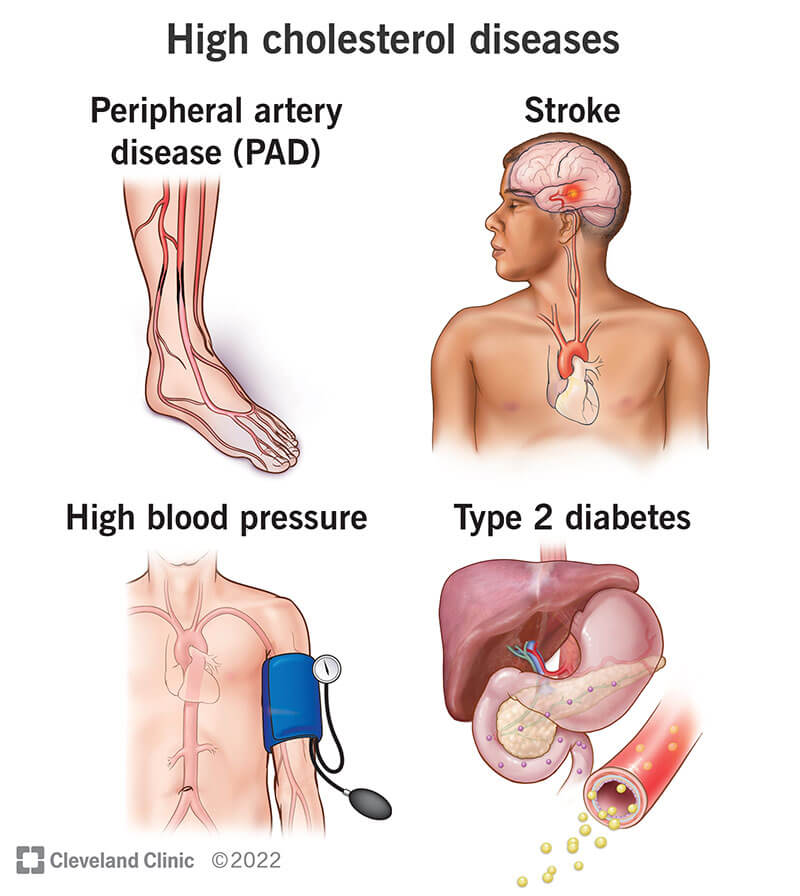Causes of high cholesterol
Lifestyle factors and genetics both play a role in causing high cholesterol. Lifestyle factors include:
- Smoking and tobacco use: Smoking lowers your “good cholesterol” (HDL) and raises your “bad cholesterol” (LDL).
- Being under a lot of stress: Stress triggers hormonal changes that cause your body to produce cholesterol.
- Drinking alcohol: Too much alcohol in your body can raise your total cholesterol.
- Not moving around enough: Physical activity like aerobic exercise improves your cholesterol numbers. If you have a desk job or sit a lot in your free time, your body won’t produce enough “good cholesterol.”
- Diet: Some foods may raise or lower your cholesterol. Sometimes healthcare providers will recommend dietary changes or a visit with a nutritionist to discuss your diet.
Symptoms of high cholesterol

High cholesterol raises your risk of conditions like peripheral artery disease, high blood pressure and stroke. High cholesterol is common among people with diabetes.
How does high cholesterol affect my body?
Over time, high cholesterol leads to plaque buildup inside your blood vessels. This plaque buildup is called atherosclerosis. People with atherosclerosis face a higher risk of many different medical conditions. That’s because your blood vessels do important work all throughout your body. So when there’s a problem in one of your blood vessels, there’s a ripple effect.
You can think of your blood vessels as a complex network of pipes that keep blood flowing through your body. Plaque is like the gunk that clogs your pipes at home and slows down your shower drain. Plaque sticks to the inner walls of your blood vessels and limits how much blood can flow through.
When you have high cholesterol, you have plaque forming inside your blood vessels. The longer you go without treatment, the bigger the plaque gets. As the plaque gets bigger, your blood vessels become narrowed or blocked. Like a partly clogged drain, your blood vessels may still work for a long time. But they won’t work as efficiently as they should.
High cholesterol raises your risk of other medical conditions depending on which blood vessels are clogged.




